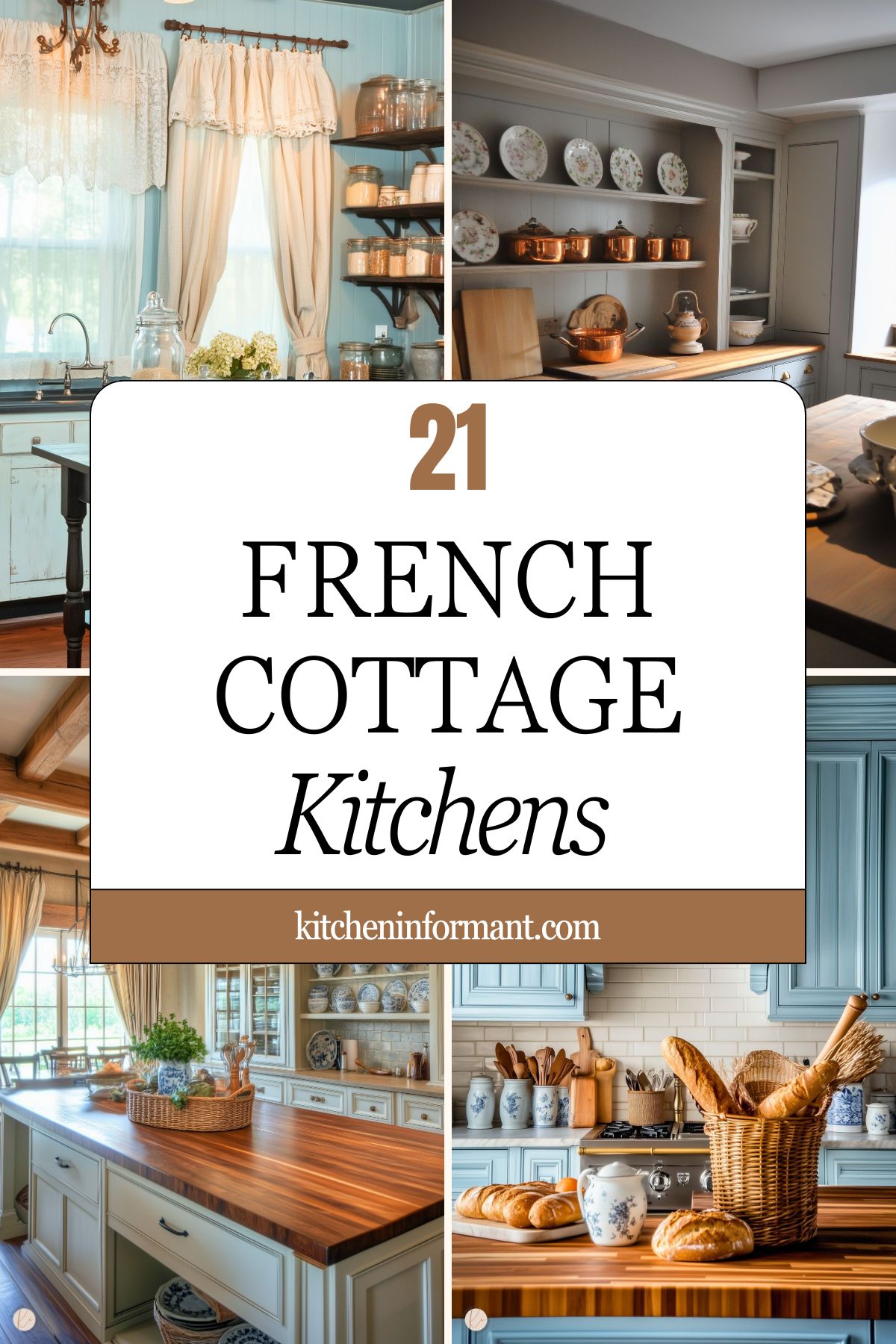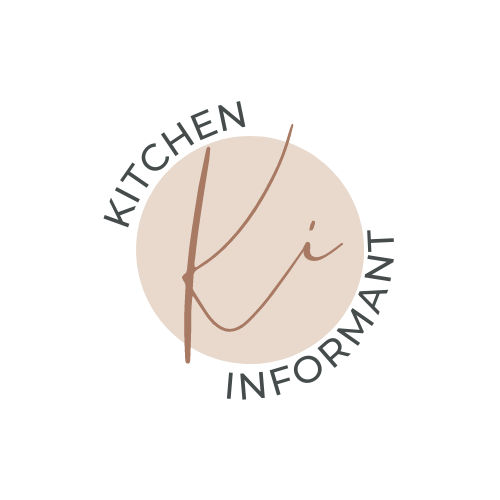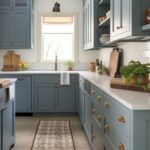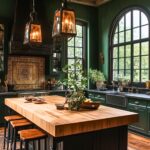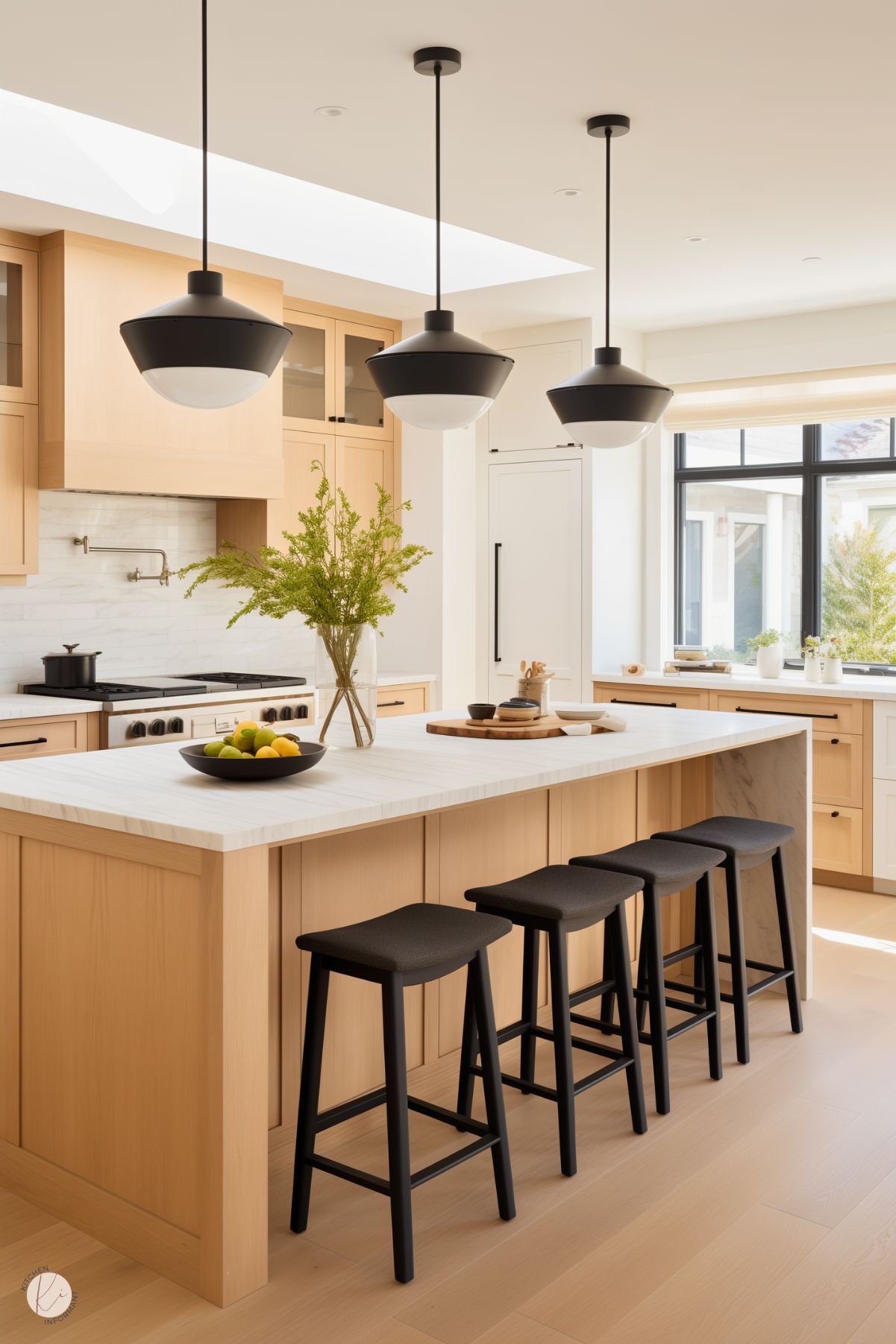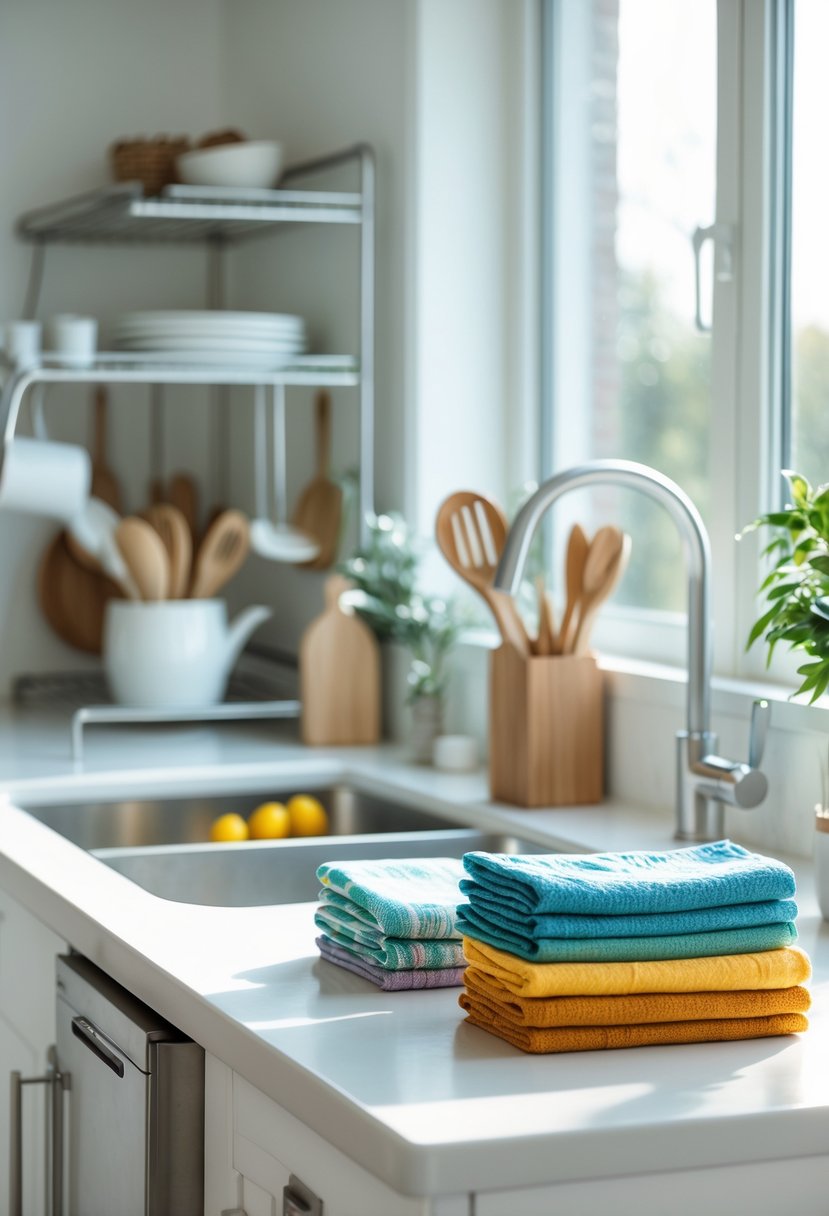French cottage kitchens are known for their warmth and charm, blending rustic elements with cozy decor.
These kitchens often feature light, earthy colors, wooden beams, and vintage furnishings that create an inviting space for cooking and gathering.
The charm of these kitchens lies in their ability to bring together functionality and aesthetic appeal, making them perfect for those who appreciate both style and comfort.
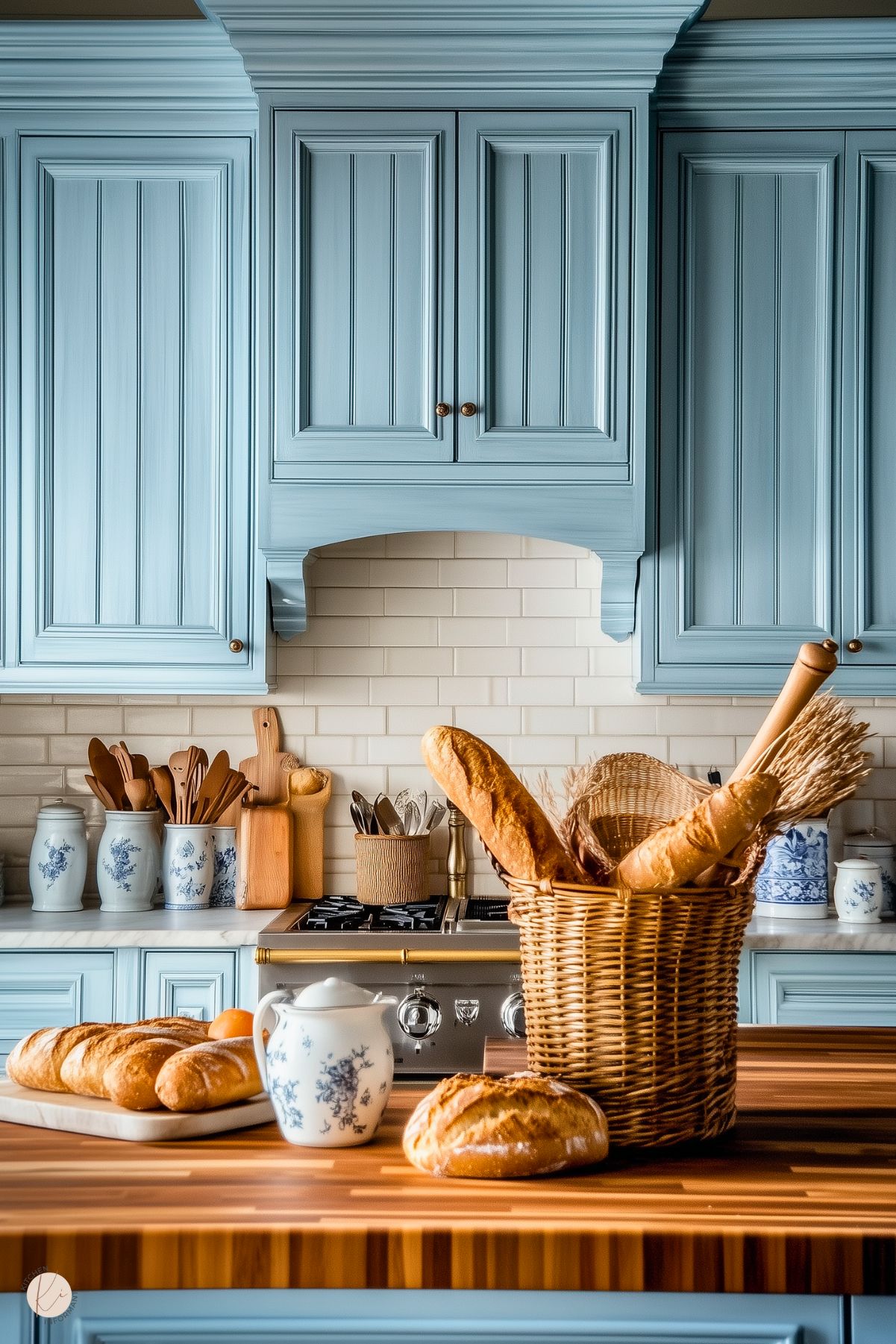
Adding elements like copper cookware and trestle tables can enhance the traditional look, making the space feel both practical and beautiful.
Natural materials, such as wood and stone, play a crucial role in achieving that authentic French cottage vibe.
Homeowners can transform even the simplest kitchen into a delightful retreat that reflects a relaxed, countryside lifestyle.
Whether it’s the allure of open shelves filled with vintage dishes or a rustic wooden table for family meals, French cottage kitchens offer endless inspiration.
This style not only elevates the kitchen’s aesthetics but also makes it a welcoming central hub for cooking and entertaining.
History and Charm of French Cottage Kitchens
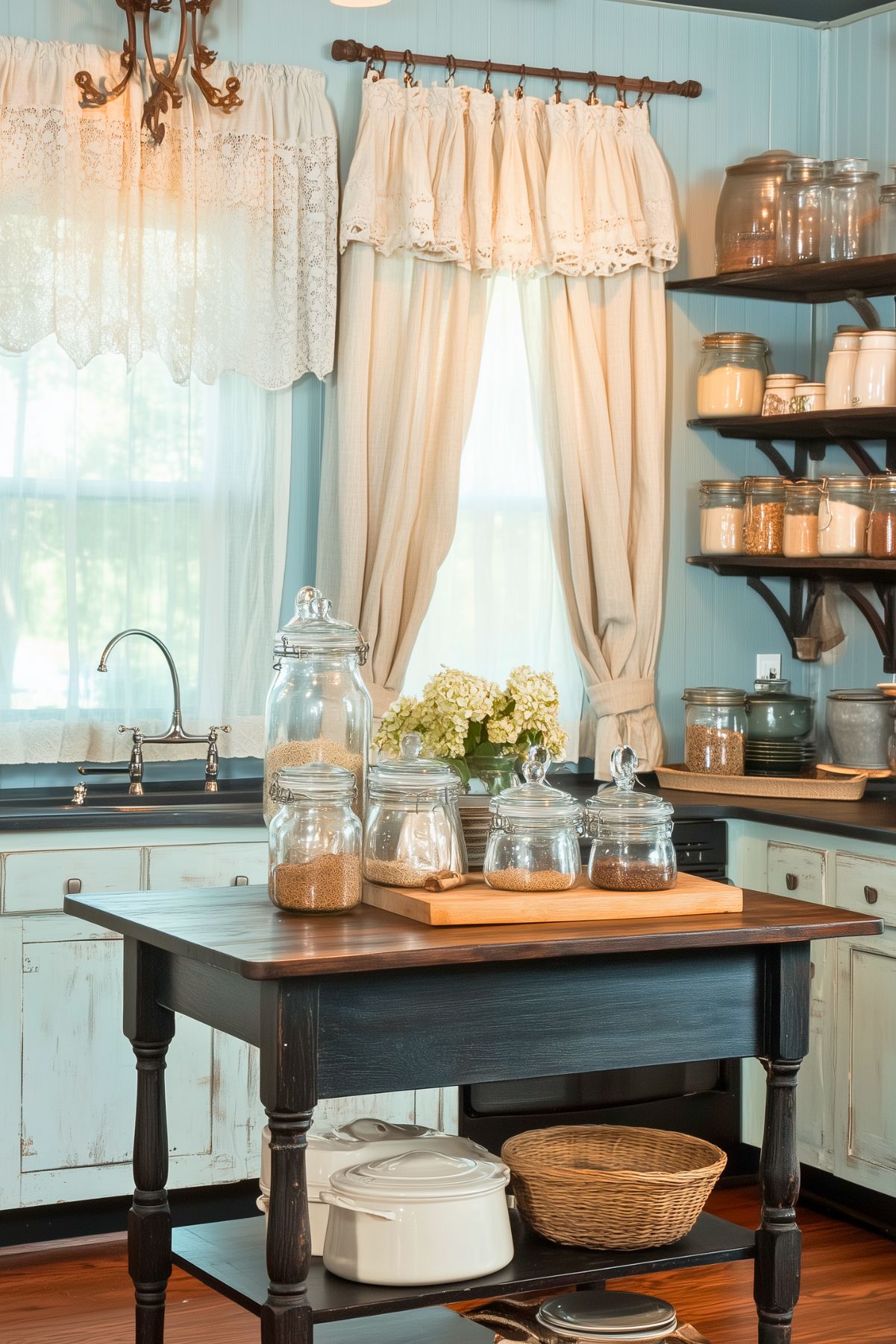
French cottage kitchens blend rustic charm with rich history. These kitchens reflect everyday life in rural France, emphasizing comfort and simplicity. They create a warm and inviting atmosphere.
Evolution Over the Centuries
The French cottage kitchen has evolved significantly over the centuries.
Initially, these kitchens were practical spaces designed for cooking and household tasks.
Early kitchens featured large open hearths, where families gathered to prepare meals and share stories.
During the Renaissance, kitchens began to adopt more decorative elements, including wood beams and tiled floors. The use of local materials showcased craftsmanship and added warmth.
By the 18th century, the French Revolution changed many aspects of life, including household designs.
The rise of the bourgeoisie led to a focus on comfort and style in kitchen décor, resulting in eclectic designs that combined functionality with beauty.
Key Elements of Historical French Kitchens
Several key elements define historical French kitchens.
One important feature is the farmhouse table, often the centerpiece where families gathered.
These tables are usually made of sturdy wood, reflecting the natural resources of the region.
Open shelving is another characteristic, allowing for easy access to everyday items like dishes and herbs.
The incorporation of vintage or handmade ceramics offers a personal touch and warmth.
Color palettes in these kitchens often include soft, muted tones, like sage green and cream, complemented by natural wood finishes.
Elements like copper pots, rustic pottery, and fresh flowers contribute to the inviting atmosphere.
Each of these details creates a kitchen that feels both functional and charming.
Design Principles for a Cozy Aesthetic
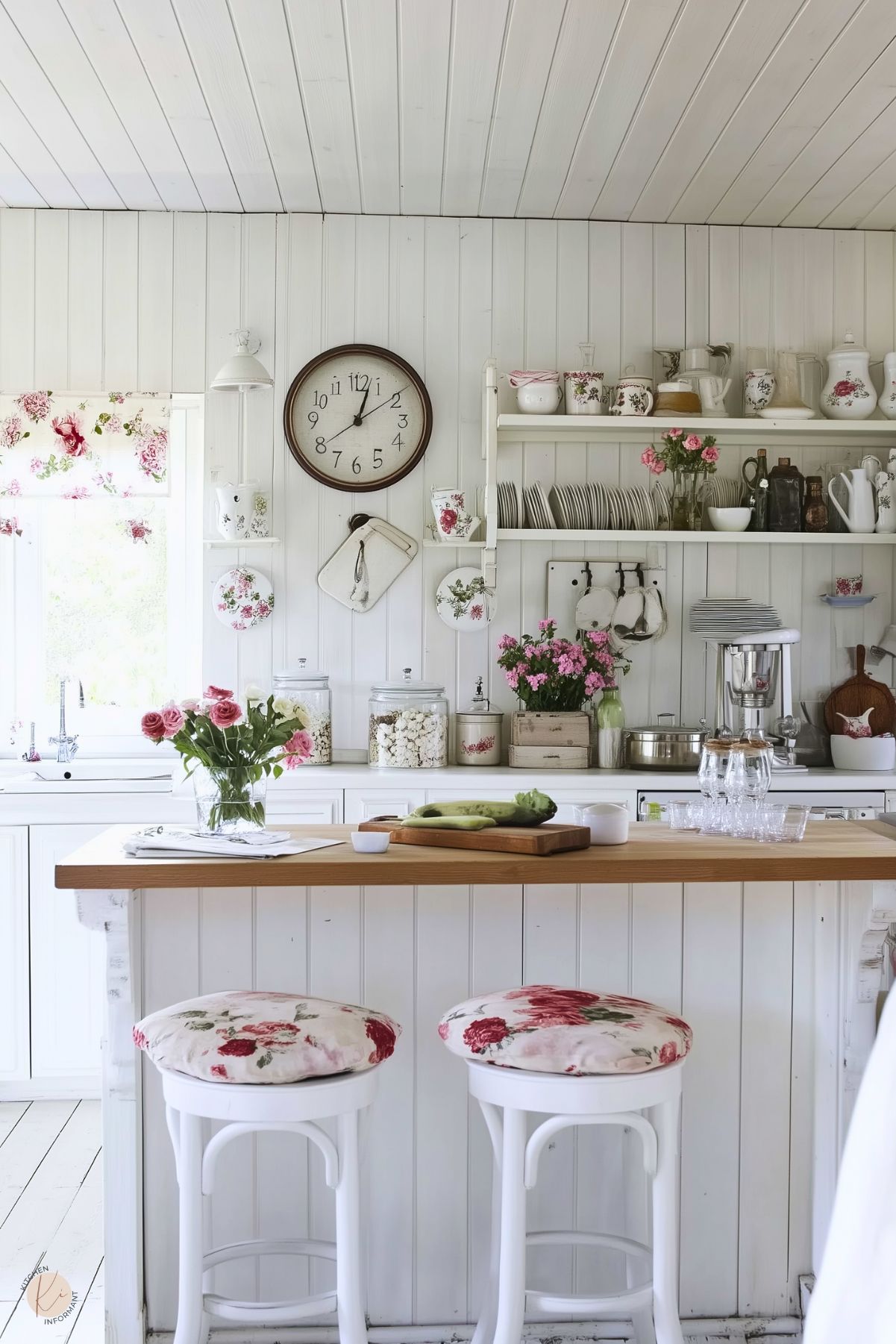
Creating a cozy French cottage kitchen involves a thoughtful selection of colors, materials, and decorative details.
By focusing on specific design principles, one can achieve an inviting and charming atmosphere that encourages warmth and comfort.
The Color Palette
In a cozy French cottage kitchen, the color palette plays a key role.
Soft, muted tones such as creamy whites, pale blues, and warm grays set a serene backdrop.
Accent colors like soft yellows or greens can add freshness without overwhelming the space.
Shades of earthy browns can be brought in through wooden elements or cabinetry. This blend creates a harmonious balance that feels both timeless and inviting.
Choosing colors inspired by nature helps reinforce the cozy feel, making the kitchen a lovely spot for gathering and cooking.
Natural Materials and Textures
Using natural materials enhances the cozy aesthetic significantly.
Wood is often the star in French cottage kitchens. Whether it’s reclaimed wood beams or a farmhouse-style table, these elements add warmth and character.
Stone can also be incorporated through countertops or flooring. Weathered stone floors are popular for their rustic charm and durability.
Textured fabrics, like linen or cotton for curtains, contribute to a soft, homey feel.
Including woven baskets for storage adds both organization and visual interest while supporting the natural theme.
Incorporating Vintage Details
Vintage details bring character and personality to a French cottage kitchen.
Elements like antique furniture or unique dishware can serve as focal points in the space.
Consider displaying vintage utensils or old-fashioned kitchen tools as decor. This not only adds charm but also connects the kitchen to its culinary roots.
Heritage-inspired tiles, especially in vibrant colors, can enhance a backsplash or floor. They provide a beautiful contrast against more neutral surfaces without dominating the overall design.
By mixing vintage pieces with modern functionality, the kitchen becomes a cozy haven where memories can be made.
Layout and Spatial Planning
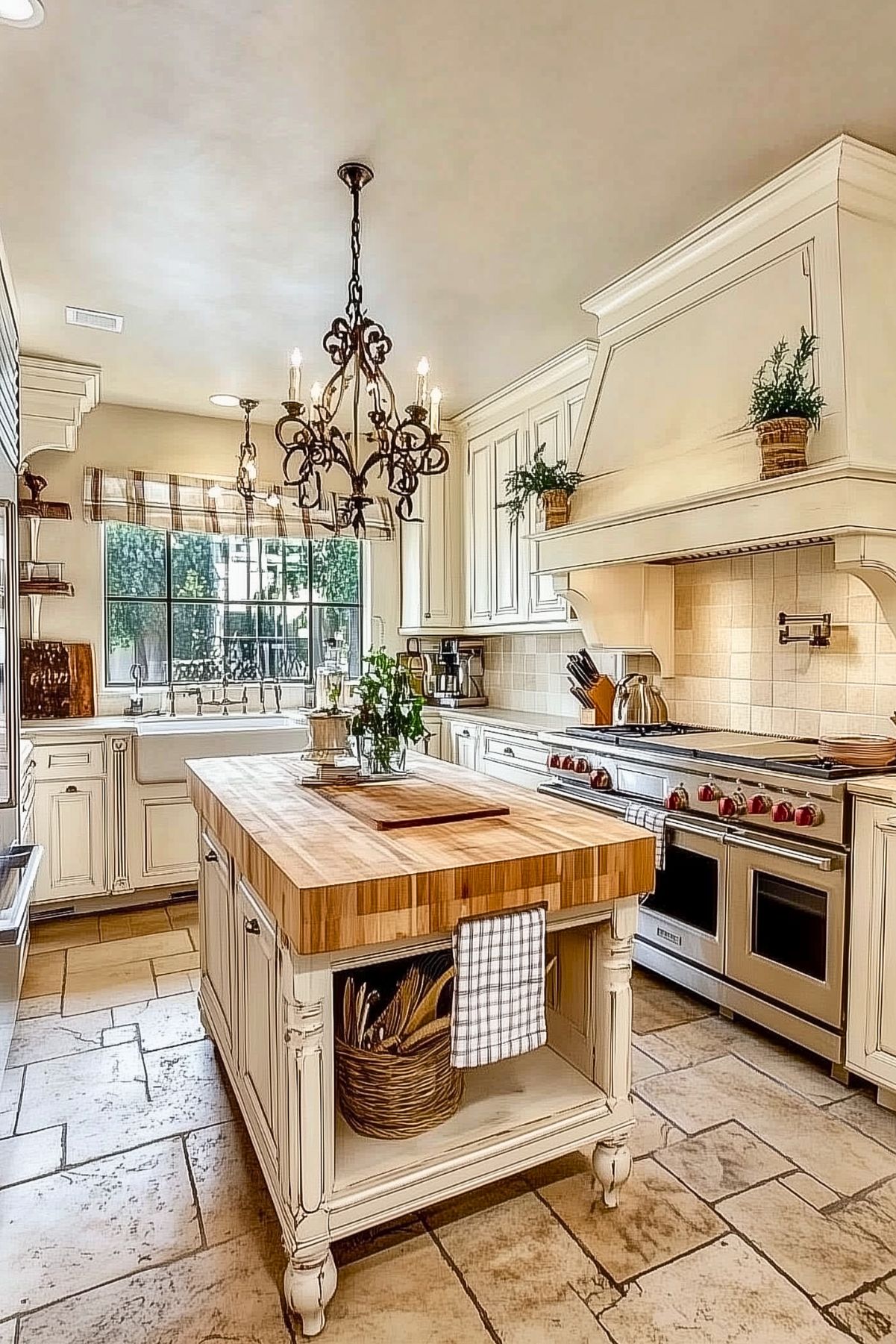
In designing a French cottage kitchen, layout and spatial planning are vital components. An effective kitchen utilizes space efficiently while fostering a warm, inviting atmosphere.
Maximizing Small Spaces
Many kitchens in French cottages are compact, making smart usage of available areas essential.
They often incorporate open shelving to create a feeling of spaciousness, allowing for easy access to dishes and decor.
Using light colors for cabinetry and walls helps to reflect natural light, making the kitchen feel larger.
Multi-functional furniture, like a kitchen island that serves as both a workspace and a dining area, contributes to better flow.
Another tip is to choose slim appliances that fit the style without overwhelming the space.
Functional Zones in a French Cottage Kitchen
Creating distinct functional zones is crucial in a French cottage kitchen. This involves segmenting the space into areas for cooking, food preparation, and dining.
This way, the kitchen becomes more organized and efficient.
The cooking zone should be easily accessible, with the stove and oven near the prep area.
Natural materials, like wood or stone, add charm while being practical.
The prep zone can include a large countertop where ingredients can be arranged comfortably.
A dedicated dining area can be cozy, perhaps with a small farmhouse table and charming mismatched chairs.
Incorporating plenty of storage, such as cabinets or a pantry, keeps the kitchen organized.
Furniture and Cabinetry
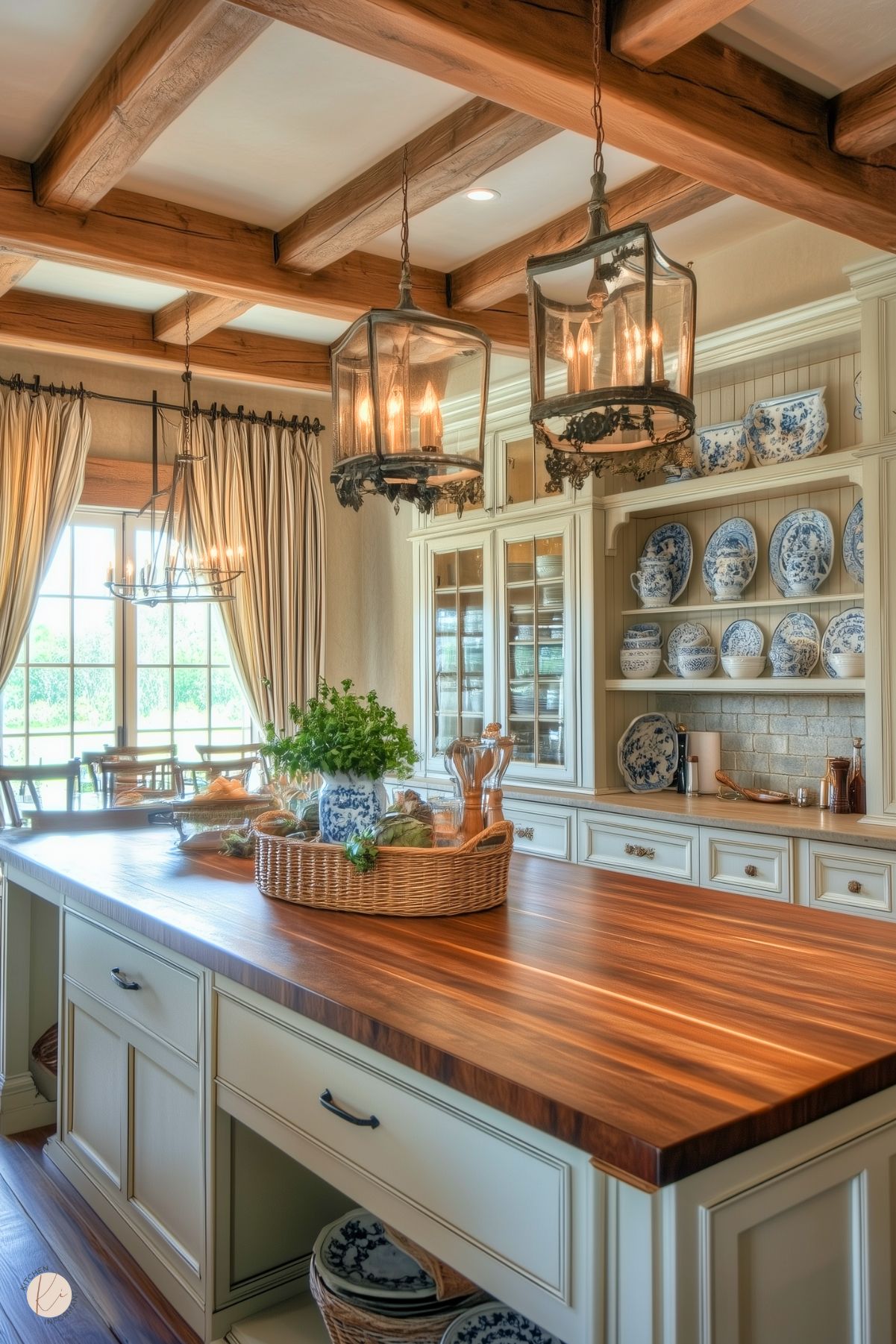
Selecting the right furniture and cabinetry enhances the charm of a French cottage kitchen. The pieces should reflect warmth and functionality while adding to the overall aesthetic.
Here are key considerations for choosing furniture and cabinetry.
Choosing the Right Pieces
When it comes to furniture, a mix of practicality and style is essential.
Farmhouse tables are a staple, providing a welcoming space for family gatherings. These tables often feature rustic finishes that enhance the homey feel.
Choose chairs that complement the table. For example, rattan or wooden chairs can evoke a cozy, inviting vibe.
Bar stools with soft cushions may also be used for a casual seating option at a kitchen island.
In terms of cabinetry, opt for furniture-like features.
Cabinets with a distressed paint finish or natural wood grain add character. Look for designs with glass doors to showcase dishware and add an airy feel.
The Role of Open Shelving
Open shelving is a common feature in French cottage kitchens. It allows for easy access to everyday items and adds a decorative element.
Displaying colorful dishware or artisanal jars creates visual interest.
To maintain a clean look, organize shelves thoughtfully. Group like items together and consider using baskets for small items.
This approach prevents clutter and keeps the space inviting.
Incorporating open shelving also encourages creativity.
It invites homeowners to mix and match colors and textures, creating a personalized touch. Practically, it can make cooking easier with ingredients and tools readily at hand.
Antique and Bespoke Options
Antique furniture adds a unique charm to any French cottage kitchen. Vintage pieces often reflect history and artistry.
Look for antique cabinets or tables for a statement piece that sparks conversation.
Bespoke cabinetry is another excellent choice.
Custom-built options allow homeowners to create a design that fits their specific space and style.
Tailoring the size and details ensures the cabinets meet both functional needs and aesthetic goals.
Consider incorporating decorative elements such as carvings or unique hardware. These features add character and connect the kitchen to the traditional roots of French design.
Mixing antique and bespoke pieces creates a warm, inviting atmosphere.
Lighting and Ambiance
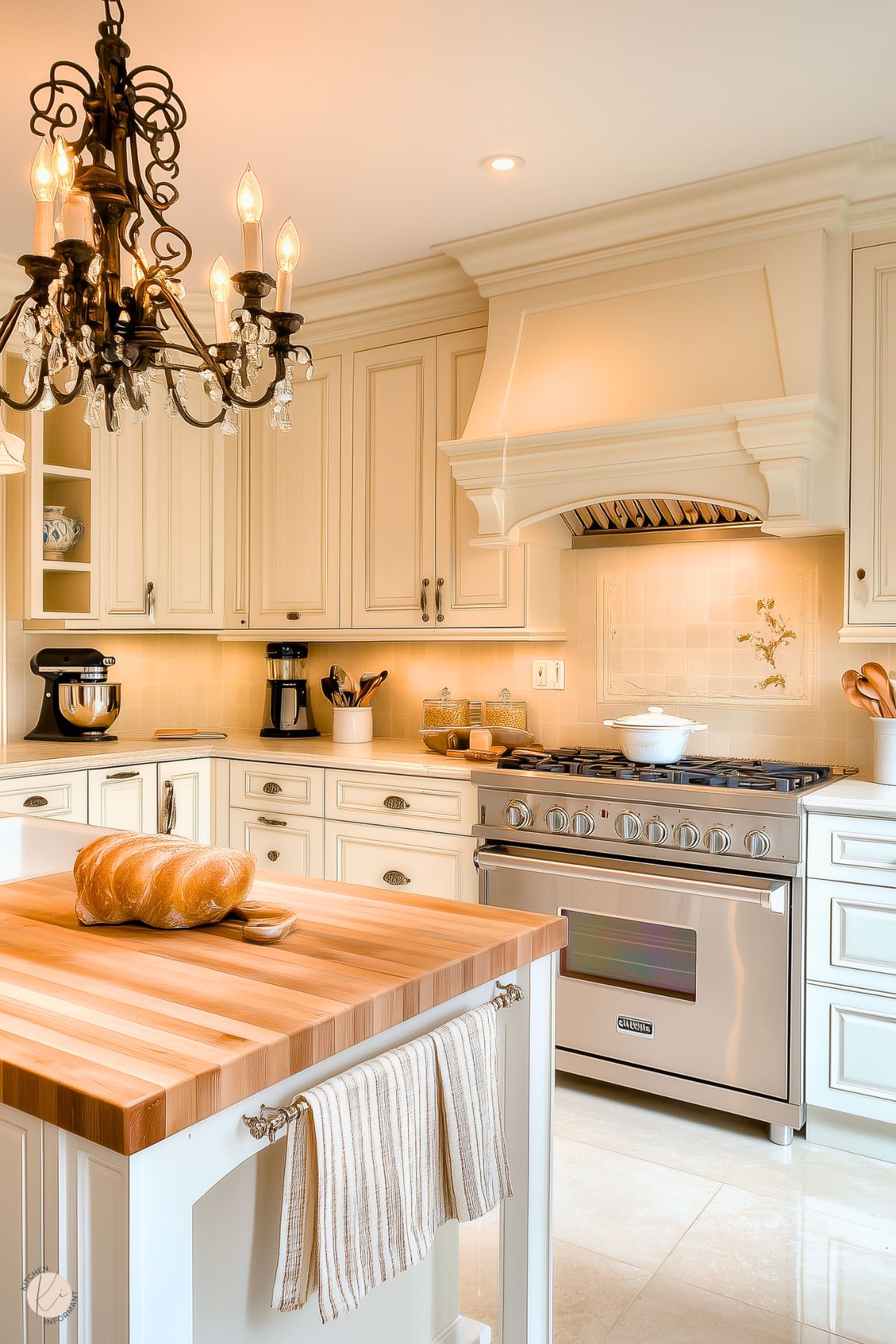
Lighting plays a crucial role in defining the ambiance of a French cottage kitchen. It manages to create a warm and inviting space while also enhancing the rustic charm typical of this style.
Choosing the right fixtures and light sources can transform the kitchen into a cozy haven.
Creating Warmth with Light
To create warmth, soft, ambient lighting is key.
Warm-toned bulbs, such as incandescent or LED with a yellow hue, mimic the glow of candlelight.
This makes the space feel inviting and comfortable, perfect for family gatherings or quiet meals.
Adding dimmers allows for adjustable light levels. This feature helps to set the right mood for different occasions, from bright lighting for cooking to softer light for intimate dinners.
Natural light is also vital.
Use sheer curtains to let sunlight in. It brightens up the kitchen and enhances the colors of wood and textiles.
Incorporating table lamps or string lights adds a charming touch. They further softens the atmosphere, creating a cozy ambiance that complements rustic decor.
Selecting Fixtures for a Rustic Feel
Choosing the right fixtures supports the overall aesthetic of the French cottage kitchen. Look for lighting that has an old-world charm.
You can find fixtures like wrought iron chandeliers or rustic pendant lights. Copper and brass materials work well for a vintage touch. They can be integrated into light fixtures or cookware to add flair.
Open shelving can also display beautiful glass jars and vintage kitchen tools, enhancing the decor while being functional.
Crystal chandeliers can add a touch of elegance without overpowering the rustic feel.
Another great option is using mason jars as light fixtures. They are versatile and bring character to the kitchen.
Decorative Accents and Accessories
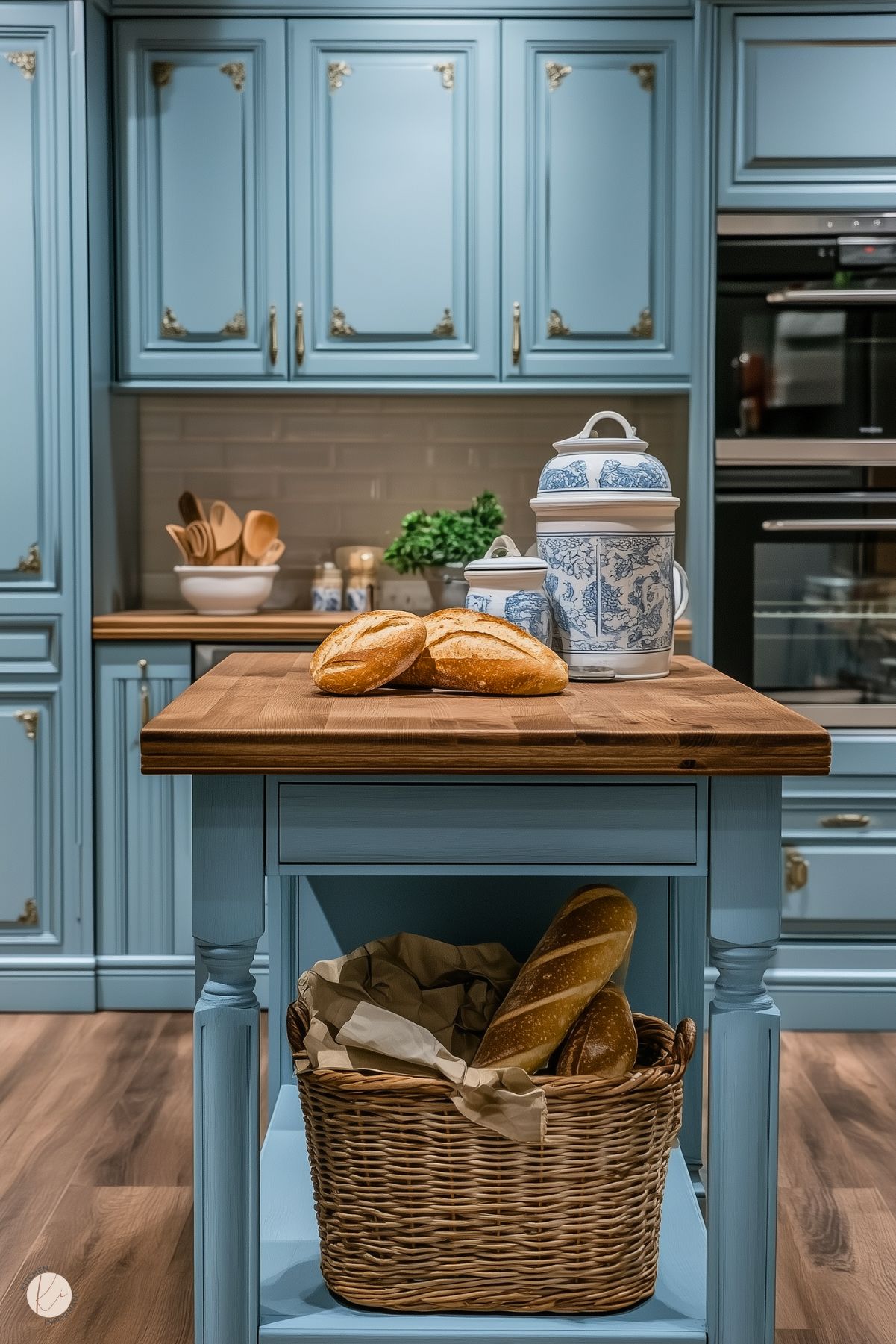
Decorative accents and accessories play a vital role in defining the charm of French cottage kitchens. These elements add character and warmth, making the space inviting and functional.
Ceramic and Porcelain Touches
Ceramic and porcelain pieces are essential in creating the cozy feel of a French cottage kitchen. Many kitchens feature a variety of decorative bowls, plates, and jugs.
These items often exhibit intricate patterns or soft, muted colors.
Common ceramic pieces include:
- Serving bowls: Great for displaying fruits or bread.
- Tea sets: Perfect for afternoon tea or casual gatherings.
- Tiles: Consider colorful tiles as a backsplash for a pop of visual interest.
Porcelain dishware can also serve a dual purpose. It not only looks beautiful on display but is also perfect for everyday use. Artfully arranged or hung, these items bring both functionality and beauty to the kitchen.
Herbs and Greenery in the Kitchen
Incorporating herbs and greenery adds life to a French cottage kitchen. Fresh herbs such as basil, rosemary, and thyme not only enhance cooking but also provide delightful aromas.
Ways to add greenery include:
- Herb pots: Use decorative pots on windowsills or countertops.
- Hanging planters: Create beautiful displays of hanging herbs.
- Fresh flowers: A vase of seasonal blooms adds color and cheer.
In addition to aesthetics, herbs are easily accessible for cooking. They enhance meals and connect the kitchen to the outdoor garden. Using greenery fosters a warm and inviting atmosphere, encouraging creativity in cooking.
Modern Adaptations and Technologies
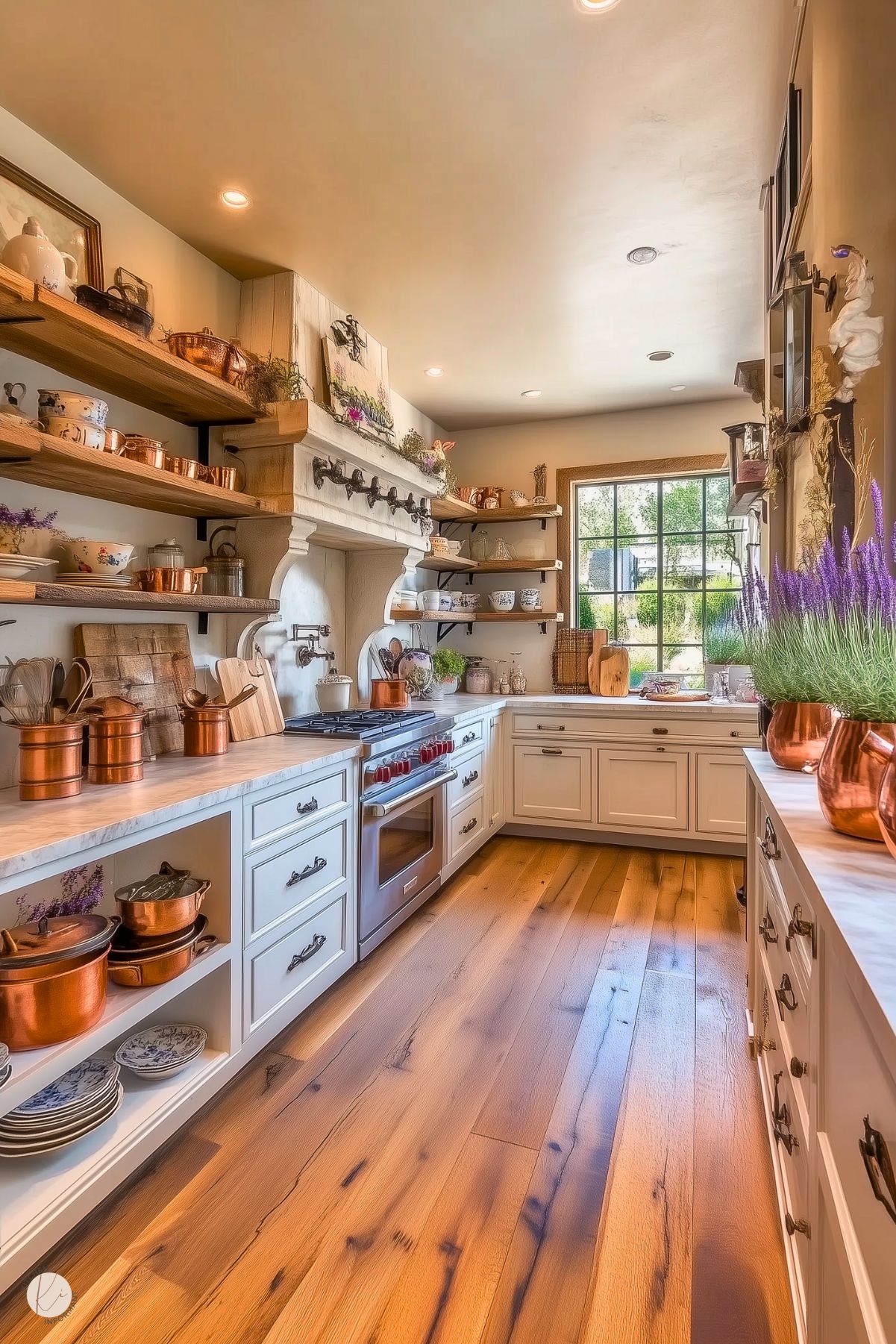
French cottage kitchens blend rustic charm with modern convenience. Their designs focus on creating a warm atmosphere while incorporating contemporary appliances and smart technologies.
Integrating Modern Appliances
In a French cottage kitchen, integrating modern appliances enhances functionality without losing style. Stainless steel refrigerators and dishwashers can complement vintage cabinetry beautifully.
Many homeowners choose ovens that feature both gas and electric options, which cater to various cooking styles.
Popular Modern Appliances:
- Professional-grade ranges: These elevate cooking experiences while maintaining a classic feel.
- Dishwashers with quiet technology: They blend in seamlessly while ensuring a peaceful environment.
Stylish microwaves can be hidden in cabinetry, preserving the kitchen’s clean lines. Overall, modern appliances can elevate both performance and aesthetics.
Smart Kitchens with French Flair
The rise of smart technology has made its way into French cottage kitchens. Smart refrigerators can monitor grocery levels and suggest recipes based on available ingredients.
Key Features of Smart Kitchens:
- Smart lighting: Allows homeowners to control ambiance with voice commands or settings on a smartphone.
- Temperature controls: Smart thermostats can help manage energy costs while maintaining the perfect cooking environment.
Adding these features doesn’t compromise the kitchen’s traditional charm. Instead, they provide convenience and efficiency, enhancing daily life.
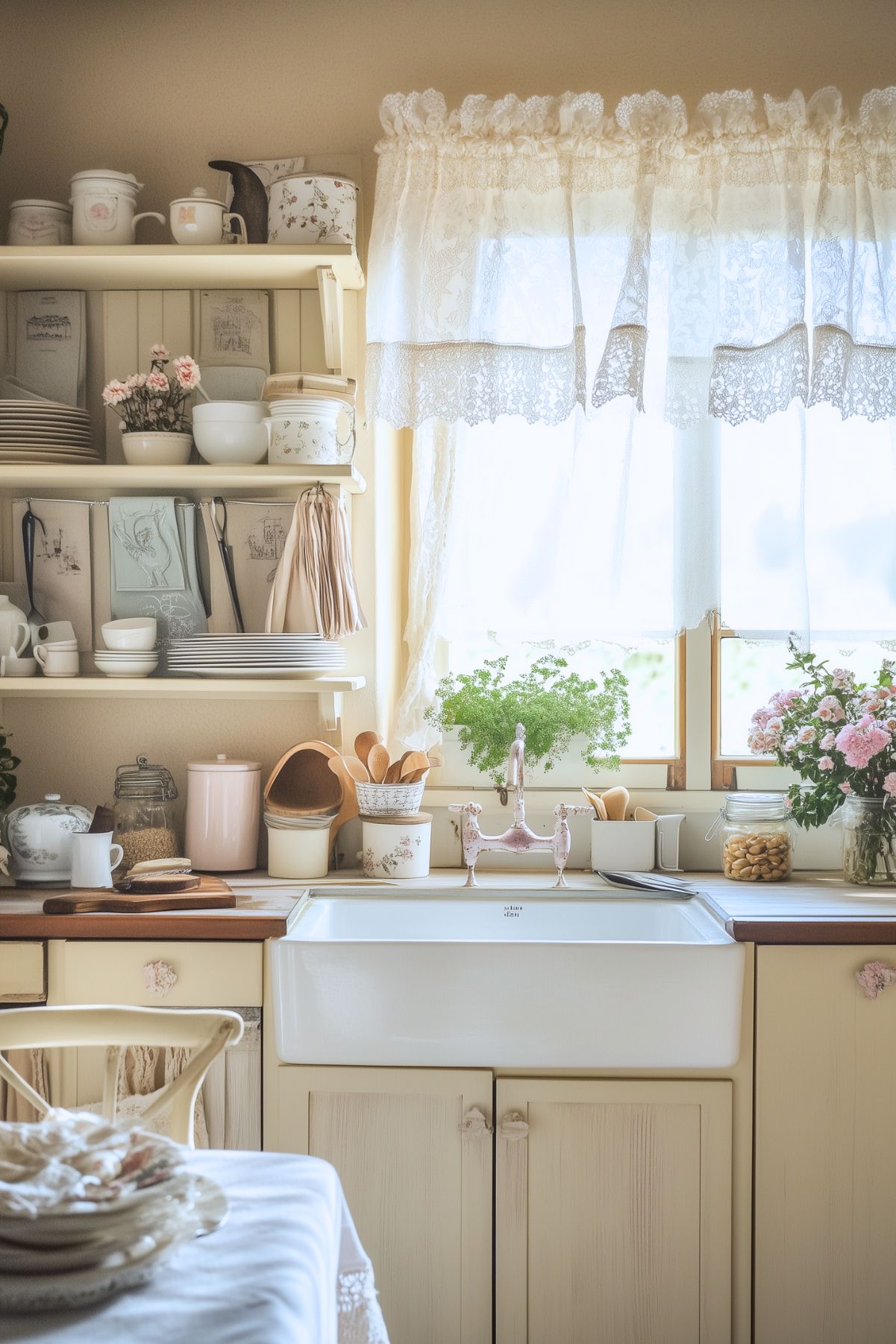
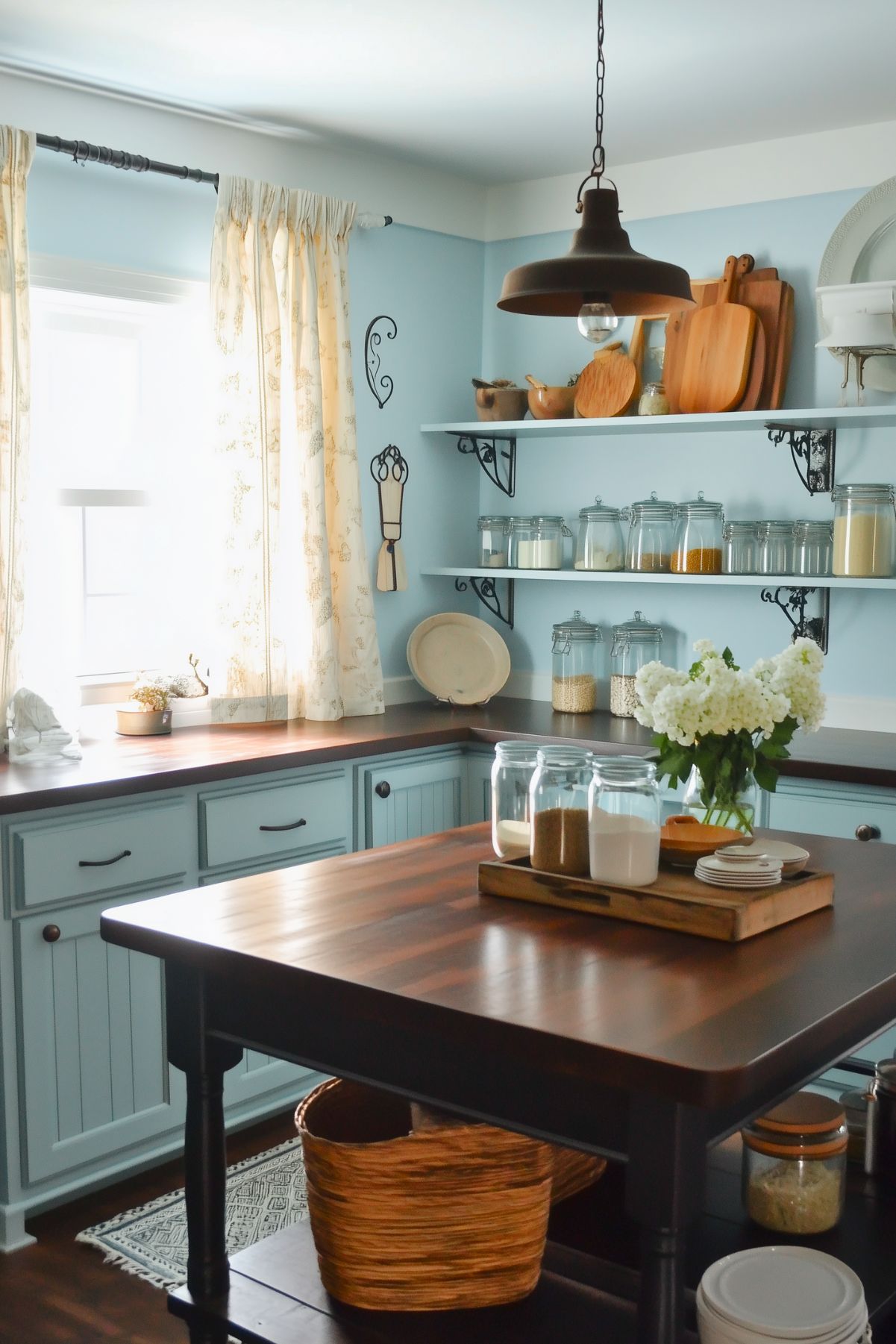
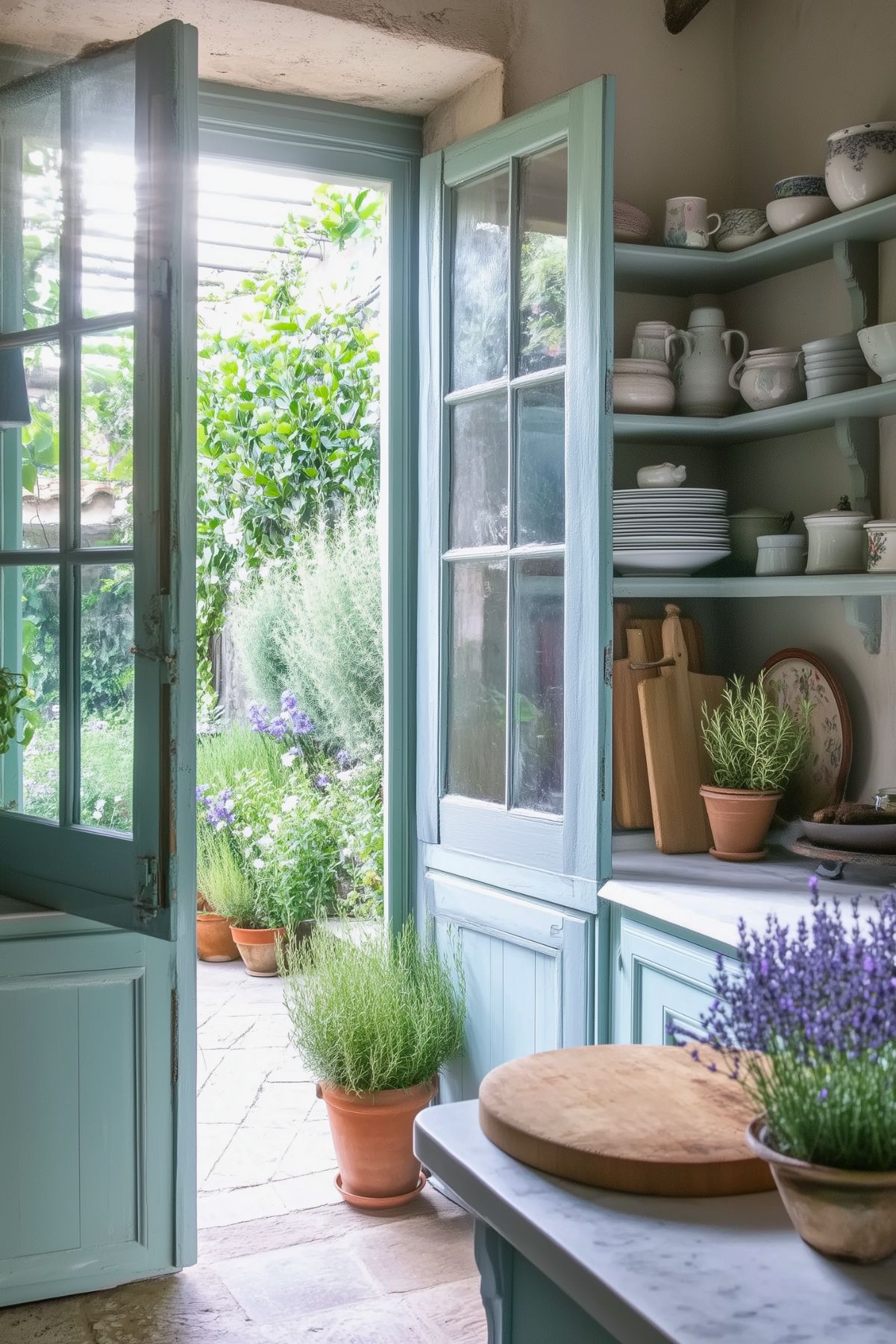
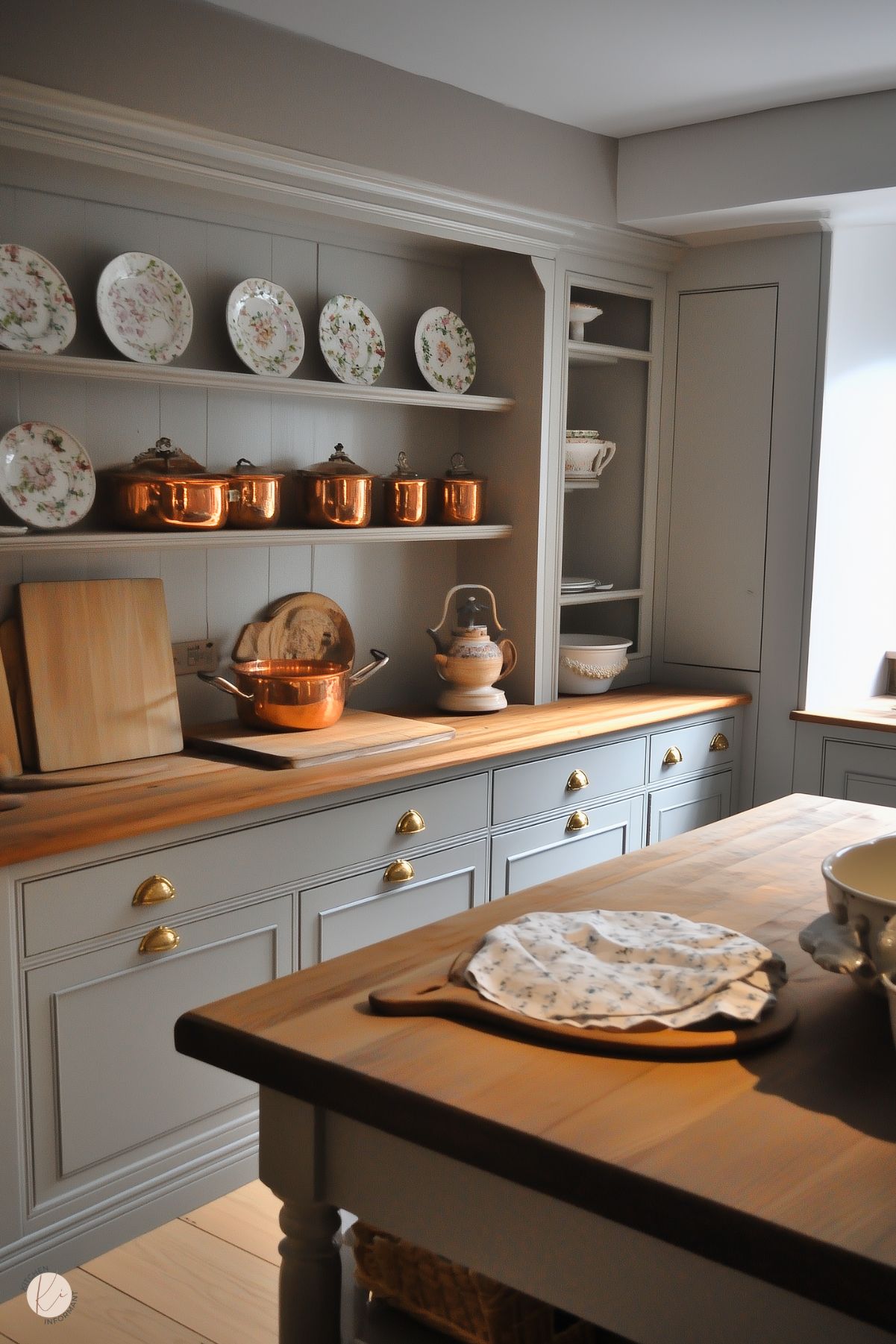
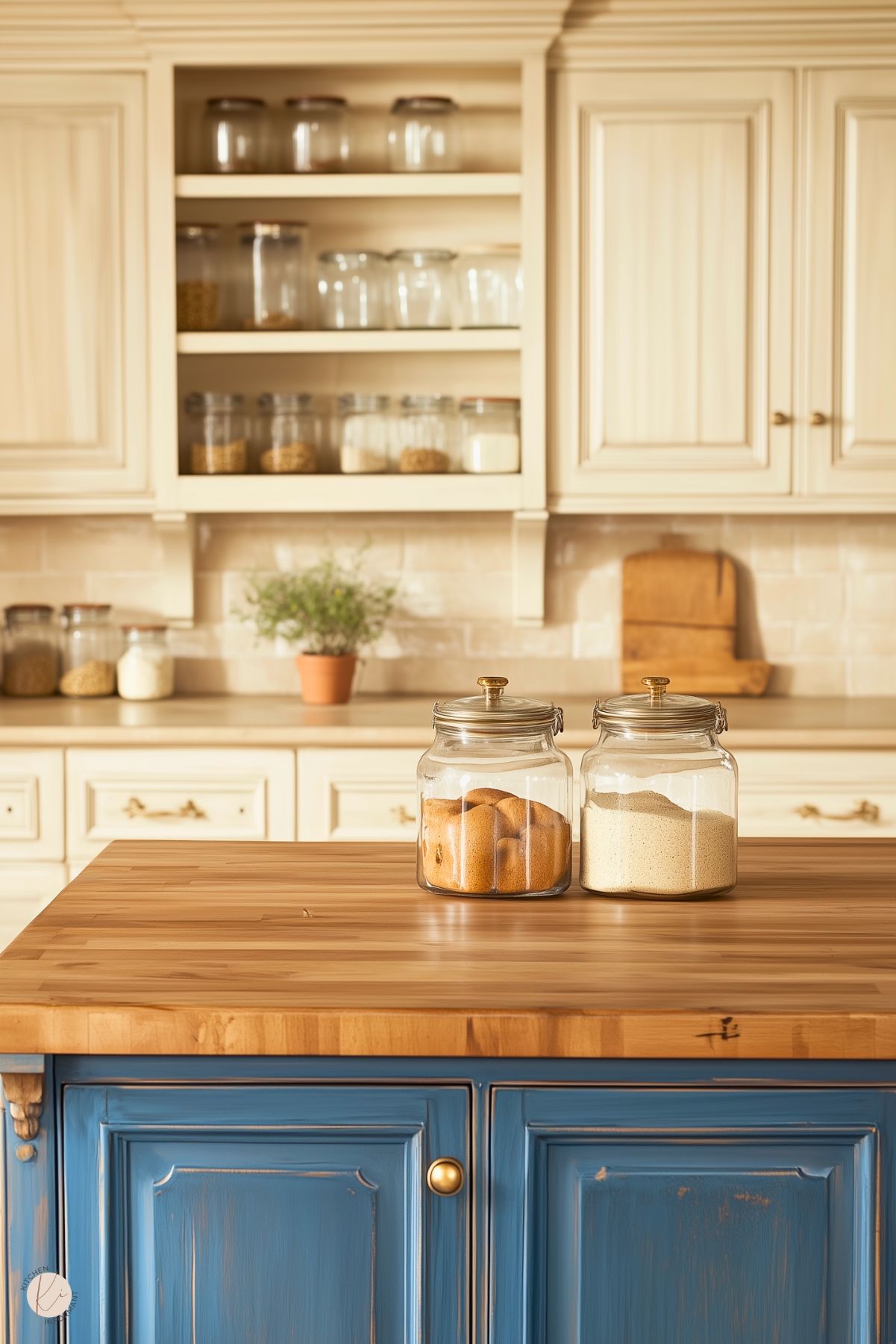
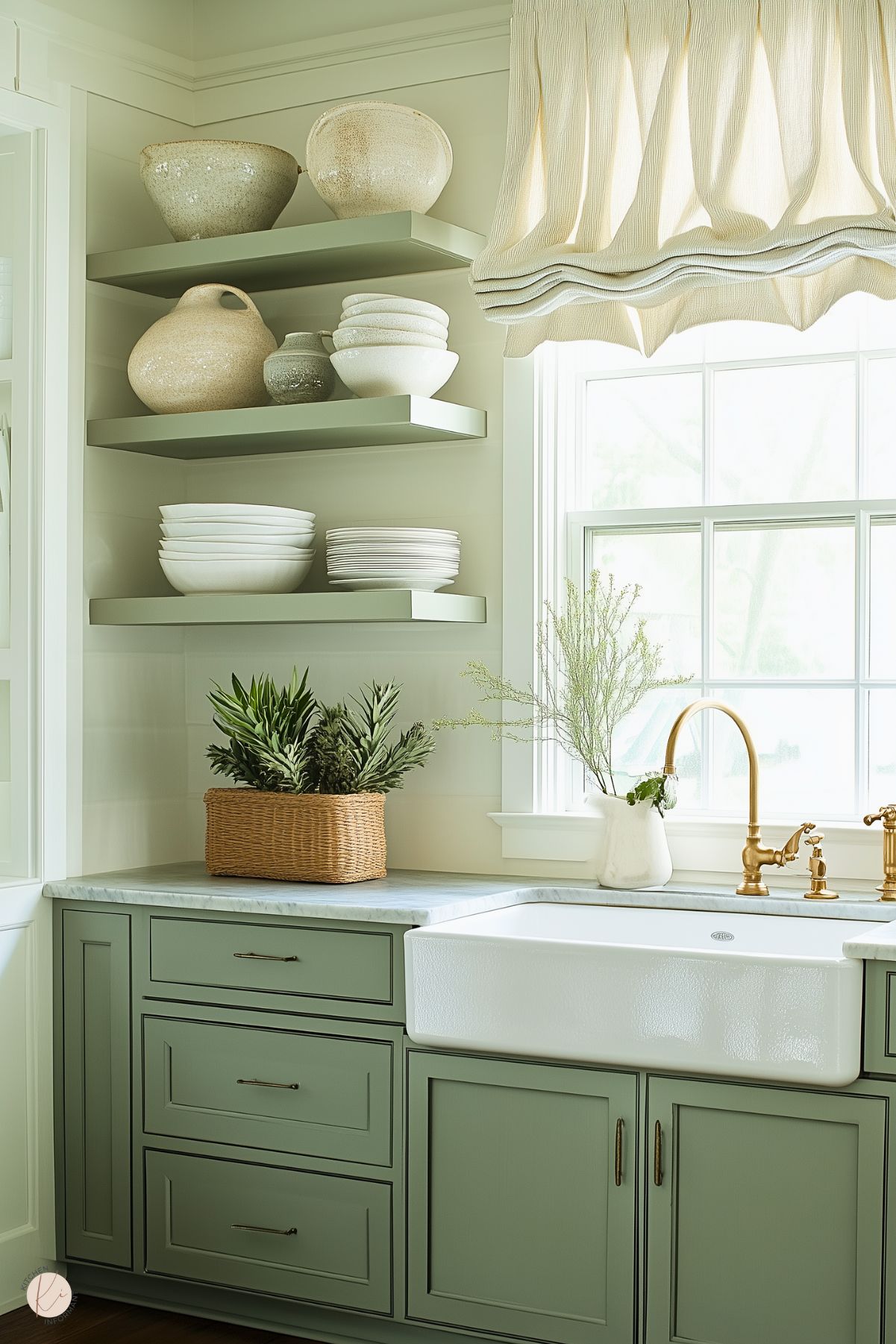
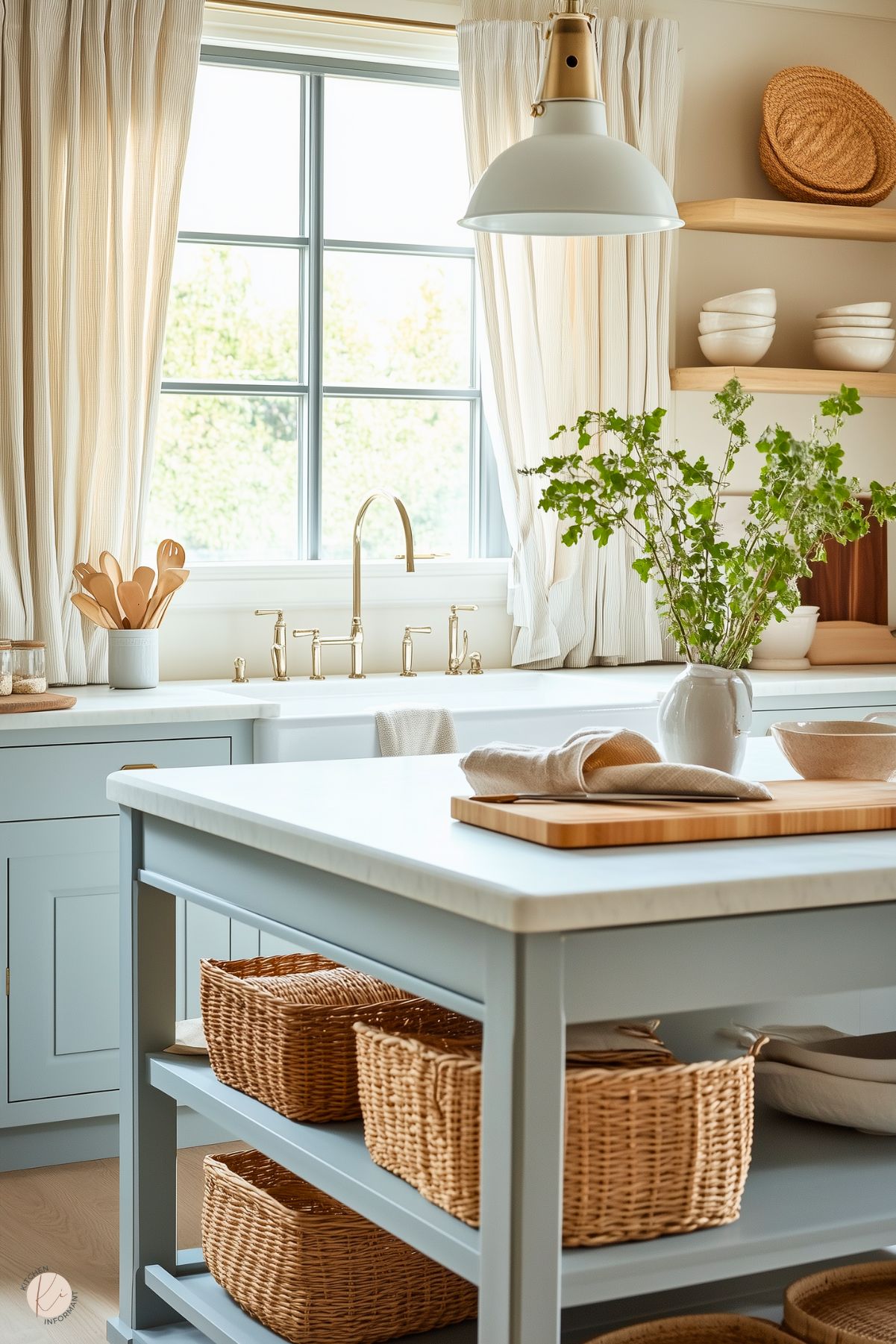
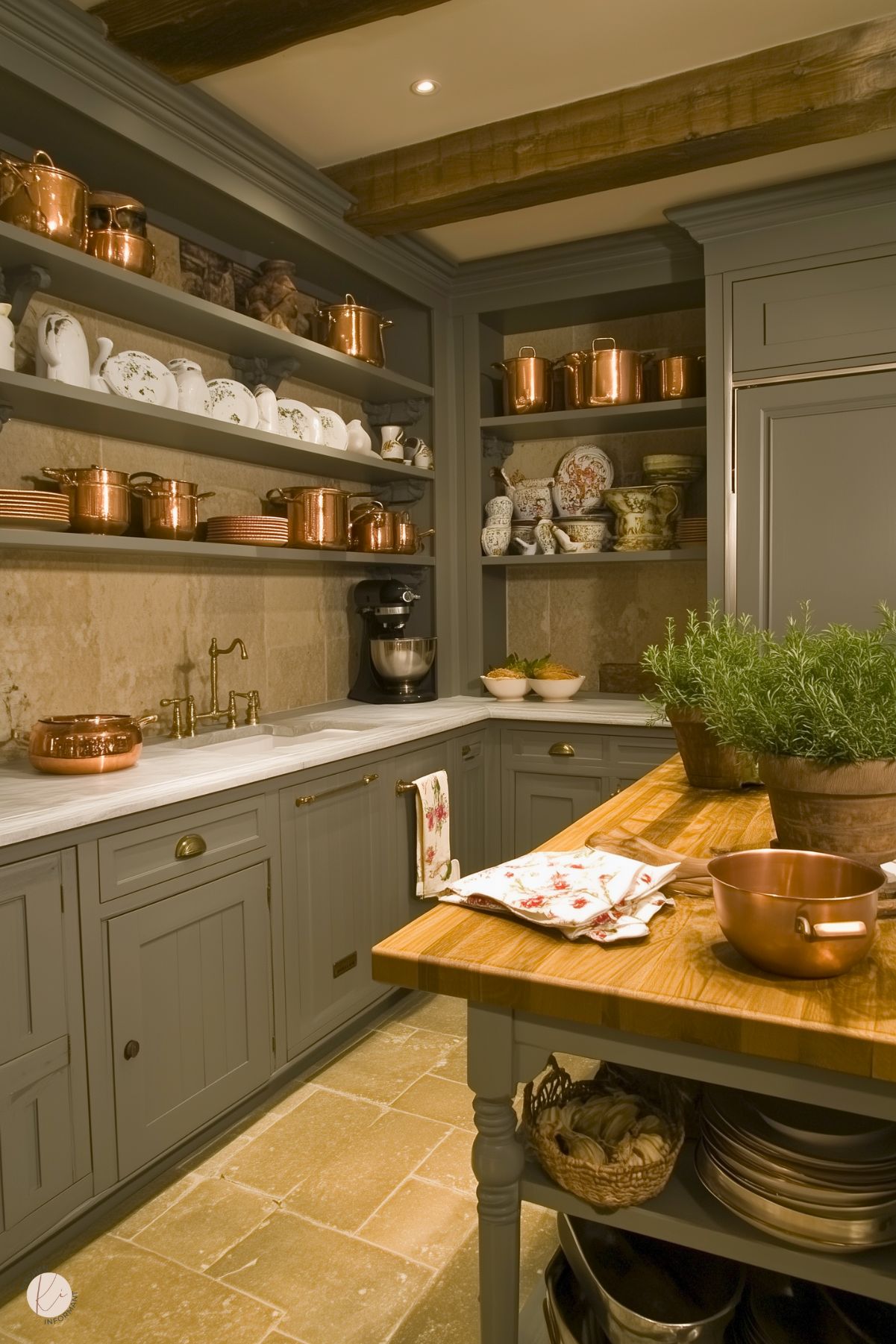
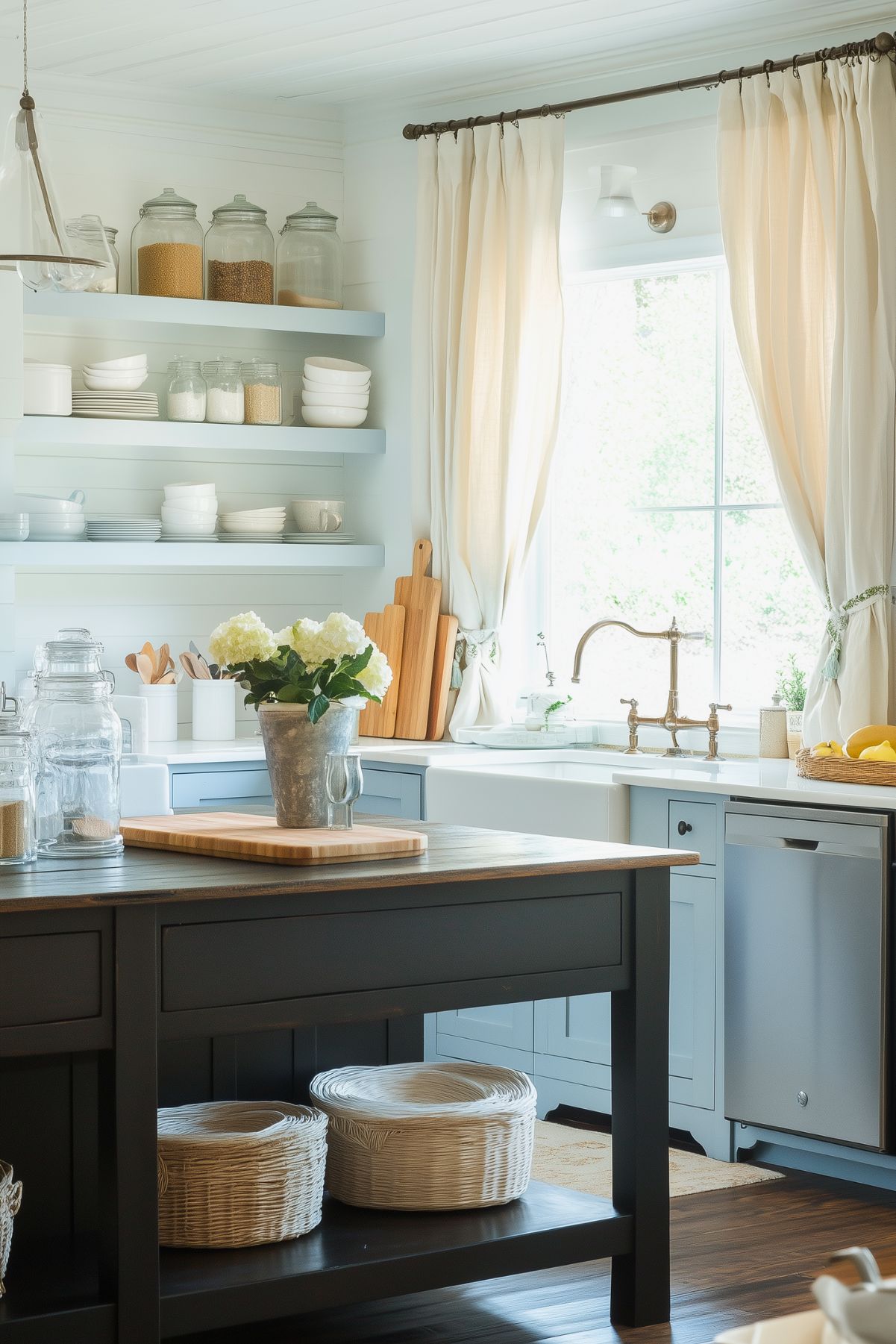
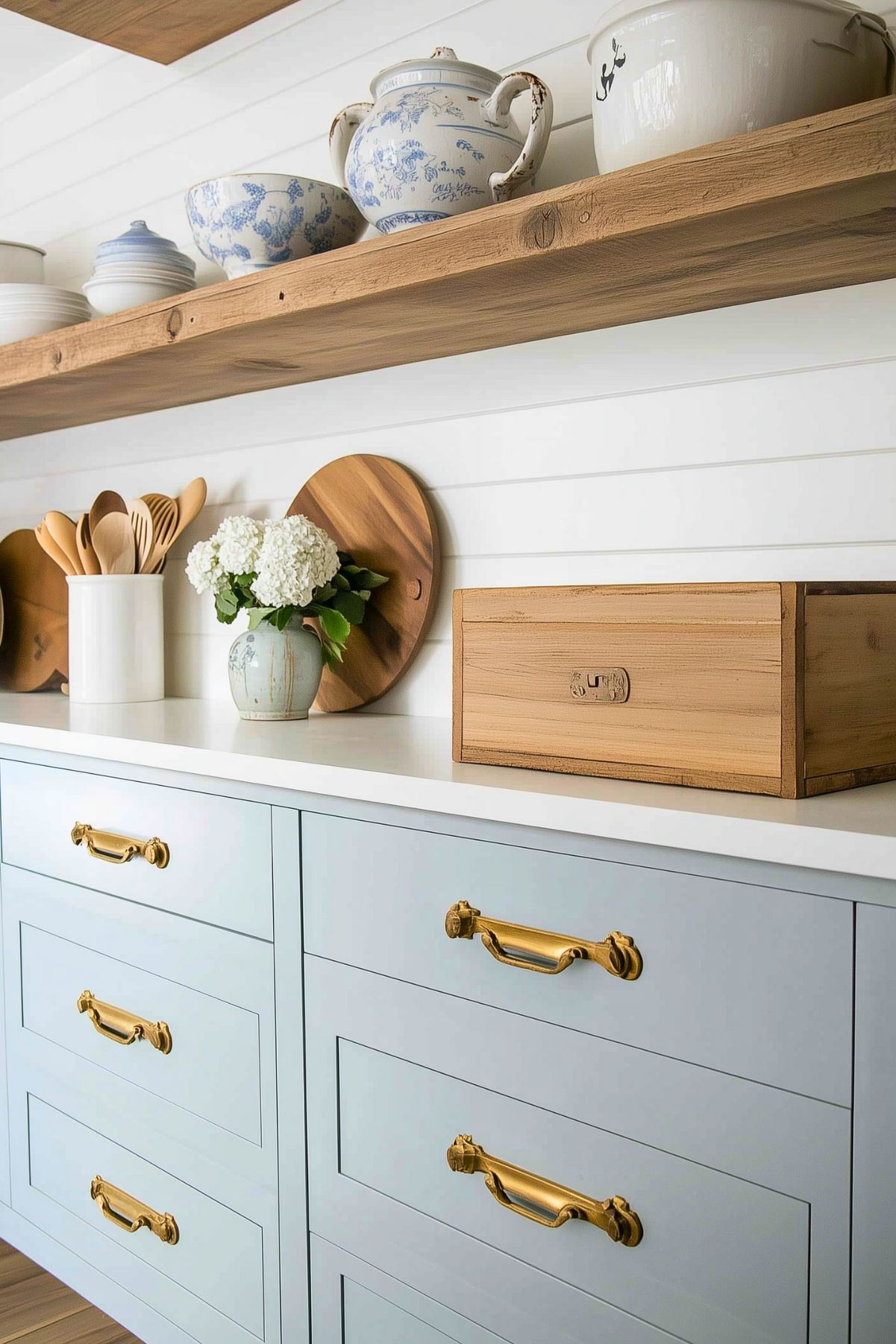
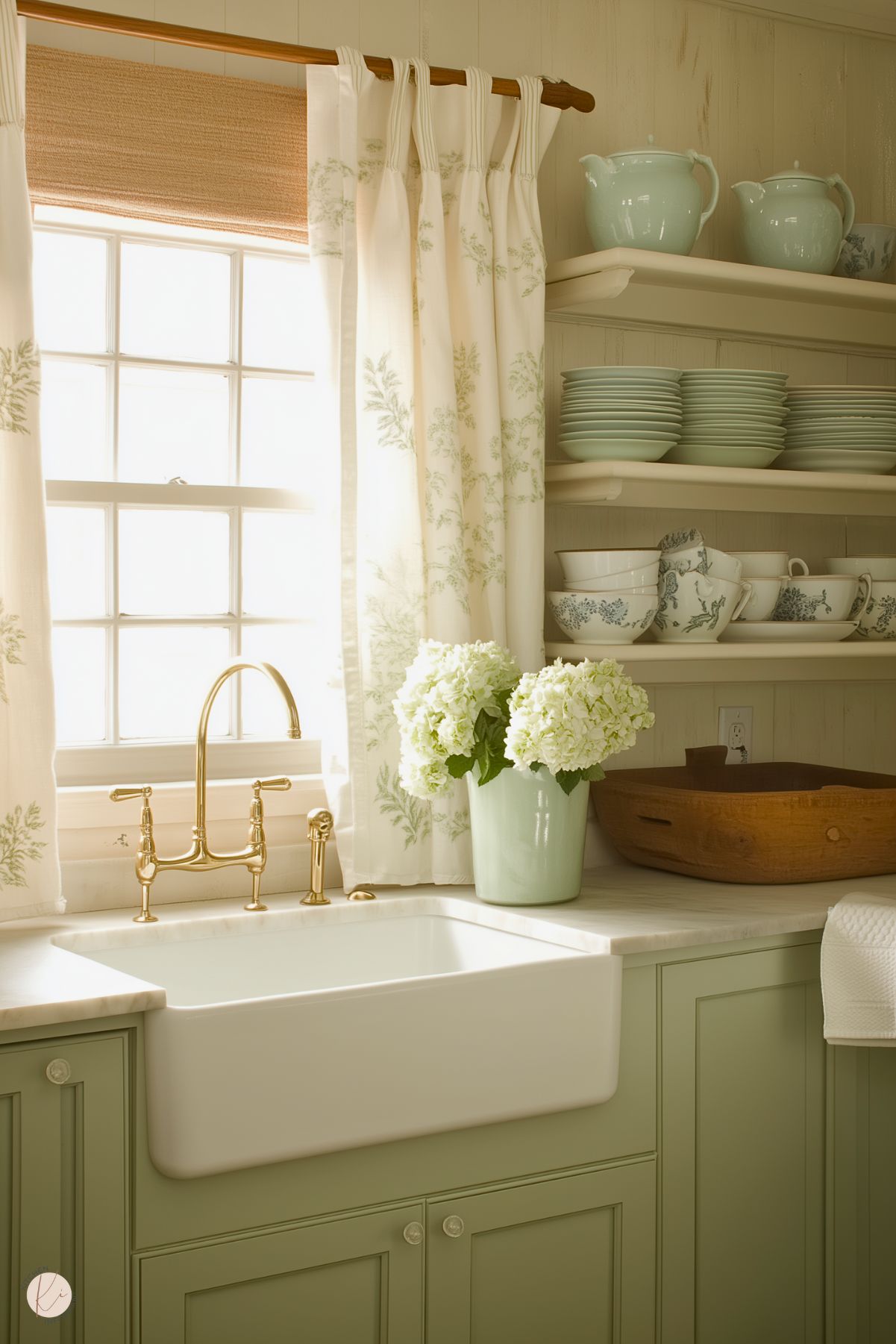
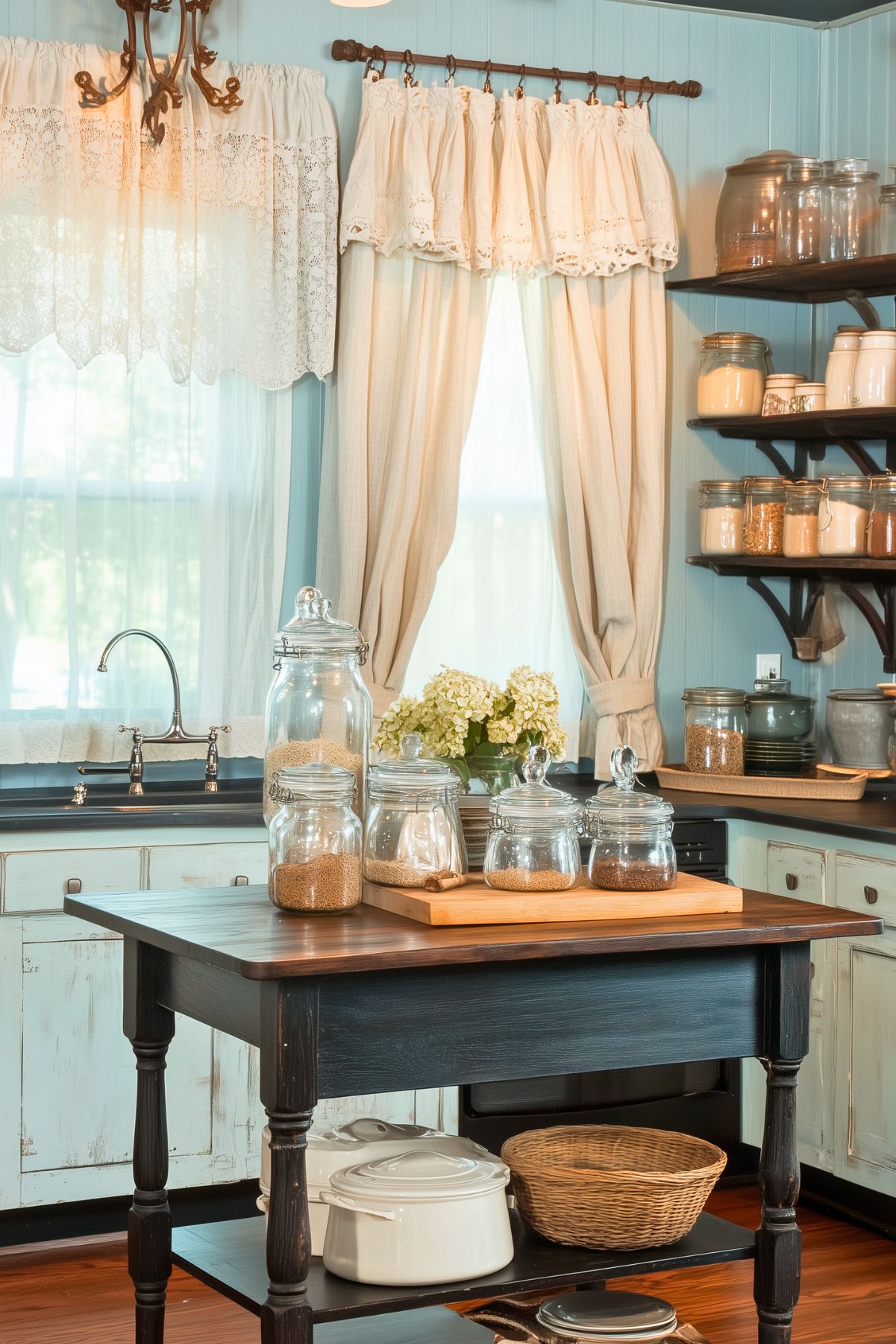
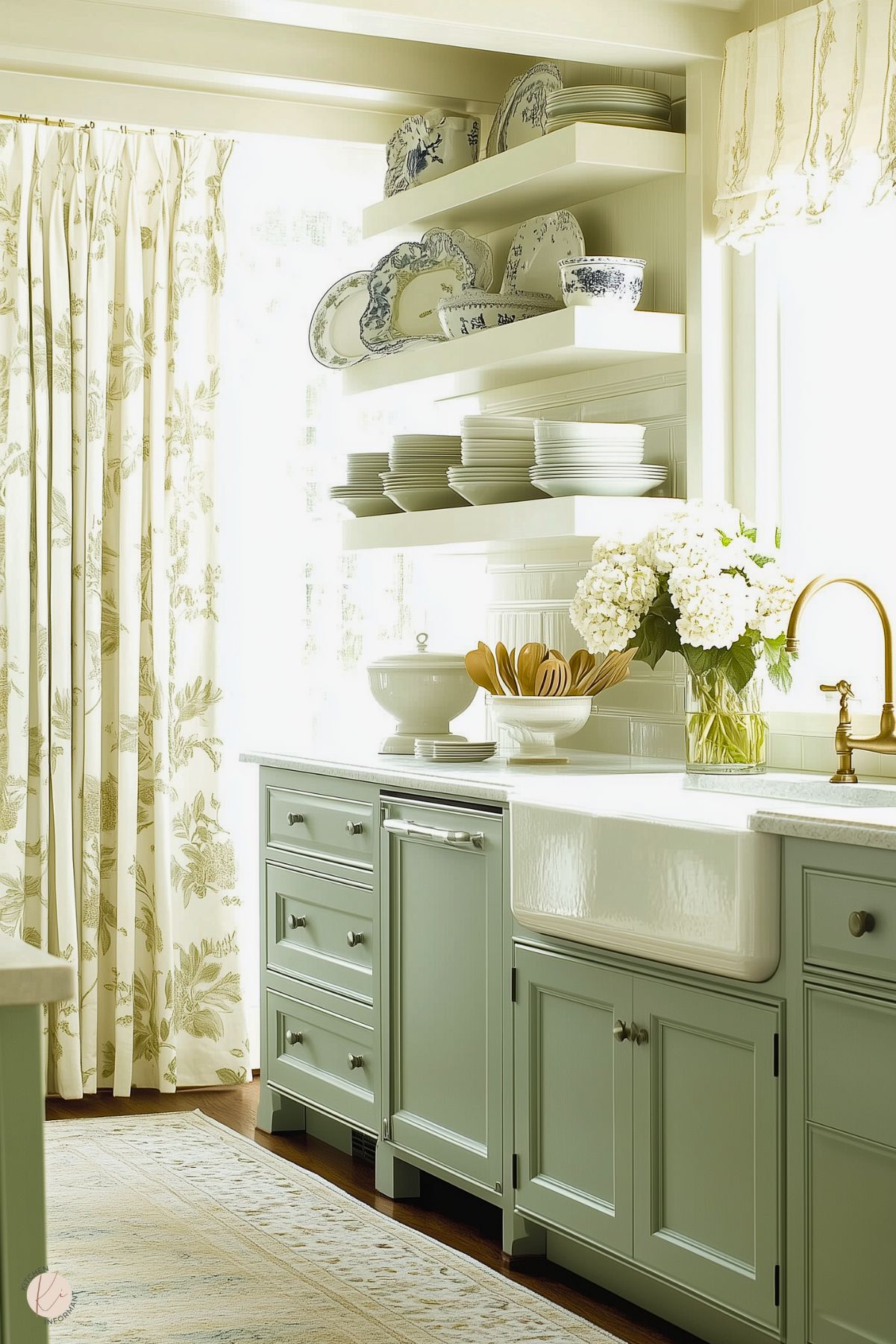
You May Also Like:
